That's what high-priced fancy lawyers are for!As long as you are not required to personally guarantee the return of the OPM.
- Thread starter Dolores
- Start date
You are using an out of date browser. It may not display this or other websites correctly.
You should upgrade or use an alternative browser.
You should upgrade or use an alternative browser.
Haiti’s political crisis needs to be tackled by the international community, says expert
While that might be true in theory, the problem lies in actually getting all the money into their hands. Mas facil dicho que hecho!"In a country where 59% of the population lives on less than $2.41 per day, the (redacted) could have simply given Haitians the money. Studies have shown that such “unconditional cash transfers” can be a more effective way to increase income and access to education and housing than many types of traditional “project-based” aid. But policies like cash transfers would have undermined the approach to aid in which rich countries simply prescribe “solutions” for poor ones, rather than allowing people to take their futures into their own hands.
I remember the first time that I saw that phrase - on a post card, actually - and it honestly took me a long time to wrap my brain around the fact that it was, in fact, a founding maxim of capitalism! It is tested to its absolute limits in Haiti where such a large majority of the population in the cities, primarily, wake up in the morning without knowing where their evening meal is coming from. I suppose it is the case in more countries in the world than we know of.. I think Haiti (and now Venezuela) is the only one in this hemisphere. There is a point at which Capitalism fails...Of course Haitians are hard working! Except for the idle rich, is there any group that isn't? Like the old saying goes:
"If you want a rich person to work harder - pay him more.
If you want a poor person to work harder - pay him less!
And then the Spikes come out... And the cries of "hang the rich" -- as is now happening over there...
"Qu'on mange du gateau"
I don't think it is a "founding maxim of capitalism", but rather an unfortunate consequence. Capitalism is far from perfect. Like Churchill said: "Capitalism is the worst economic system - except for all the others". Also:I remember the first time that I saw that phrase - on a post card, actually - and it honestly took me a long time to wrap my brain around the fact that it was, in fact, a founding maxim of capitalism! It is tested to its absolute limits in Haiti where such a large majority of the population in the cities, primarily, wake up in the morning without knowing where their evening meal is coming from. I suppose it is the case in more countries in the world than we know of.. I think Haiti (and now Venezuela) is the only one in this hemisphere. There is a point at which Capitalism fails...
And then the Spikes come out... And the cries of "hang the rich" -- as is now happening over there...
"Qu'on mange du gateau"
'The inherent vice of capitalism is the unequal sharing of blessings. The inherent virtue of Socialism is the equal sharing of miseries.
"A wealth of psychology research suggests that there's little causal relationship, if any, between how much you pay someone and how hard they work."
 that looks good on a post card but does not hold up when examined with academic rigor.
that looks good on a post card but does not hold up when examined with academic rigor.
"At this point, you're probably asking: What does make people work harder? You probably won't like the answer: 1) hunger and 2) threat of punishment.
People who are hungry (literally, not figuratively) will work incredibly hard to get something to eat. That's why slavery is so efficient: The employer can ensure that only workers who make quota will get fed.
People who are afraid of being punished also work harder. For example, telling people they'll be fired if they don't work harder puts noses to grindstones, especially when jobs are scarce and losing a job means loss of health insurance."

 www.inc.com
www.inc.com
Who benefits from the situation in Haiti
Follow the money 🤑
The rich do not need to be killed or taxed until they are poor.
Each capitalistic system needs to be "adjusted" for fair play and equal opportunity...
Not results‼️
Pop psychology bullLike the old saying goes:
"If you want a rich person to work harder - pay him more.
If you want a poor person to work harder - pay him less!
"At this point, you're probably asking: What does make people work harder? You probably won't like the answer: 1) hunger and 2) threat of punishment.
People who are hungry (literally, not figuratively) will work incredibly hard to get something to eat. That's why slavery is so efficient: The employer can ensure that only workers who make quota will get fed.
People who are afraid of being punished also work harder. For example, telling people they'll be fired if they don't work harder puts noses to grindstones, especially when jobs are scarce and losing a job means loss of health insurance."

Paying People More Won't Make Them Work Harder, According to Science
Scientifically speaking, there's little or no connection between what you pay and how hard employees work.
Economic slavery‼️It is tested to its absolute limits in Haiti where such a large majority of the population in the cities, primarily, wake up in the morning without knowing where their evening meal is coming from. I suppose it is the case in more countries in the world than we know of.. I think Haiti (and now Venezuela) is the only one in this hemisphere.
Who benefits from the situation in Haiti
Follow the money 🤑
The rich do not need to be killed or taxed until they are poor.
Each capitalistic system needs to be "adjusted" for fair play and equal opportunity...
Not results‼️
THAT is a MOST EXCELLENT article! I had never read anything by this journalist https://jacobkushner.com/about/. - and could quibble with some of his statements but to summarize, as he did, so many years of Haitian history into a short piece is very difficult and he did a terrific job. Indeed,the failure of ALL the international aid to Haiti after the 2010 earthquake ought to have resulted in every single aid organization simply leaving in shame. The basic problem is that it is very hard to write a decent grant proposal to qualify for aid - from ANY government - and no matter which government - the award money will go to its own nationals and companies.. I do recommend everyone to read at least these two books -"In a country where 59% of the population lives on less than $2.41 per day, the (redacted) could have simply given Haitians the money. Studies have shown that such “unconditional cash transfers” can be a more effective way to increase income and access to education and housing than many types of traditional “project-based” aid. But policies like cash transfers would have undermined the approach to aid in which rich countries simply prescribe “solutions” for poor ones, rather than allowing people to take their futures into their own hands.
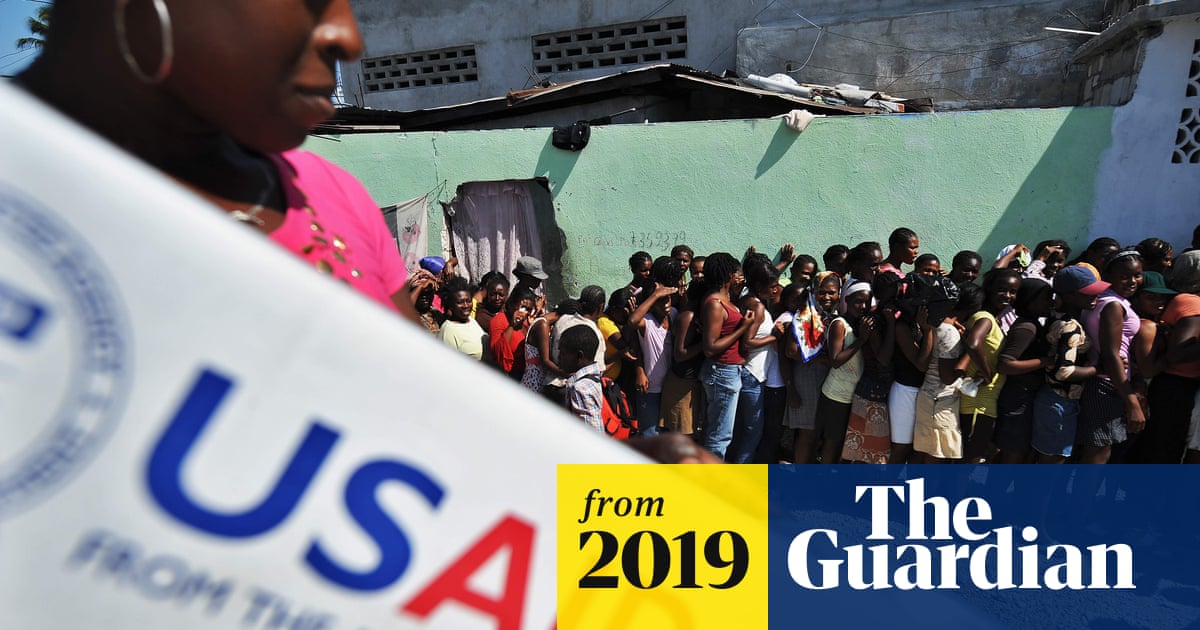
Haiti and the failed promise of US aid
The long read: After an earthquake struck in 2010, the US pledged to help rebuild the Caribbean country. A decade later, nothing better symbolises the failure of these efforts than the story of a new port that was promised, but never builtwww.theguardian.com
"And if you want to stay rich, create a program with OPM that allows you to take advantage of the less fortunate economically" - unknown economic imperialist.

Confessions of an Economic Hit Man - Wikipedia
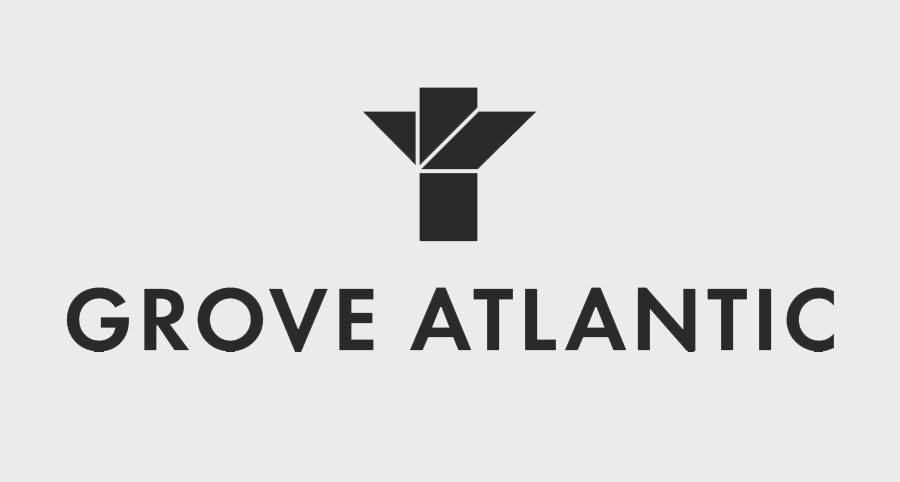
Lords of Poverty | Grove Atlantic
“A deadly serious book about a desperately important subject, a book that . . . succeeds in standing the myth of foreign aid on...
Some of the stuff that the international aid organizations - INCLUDING MISSIONARIES - have done in Haiti - have been truly disgusting -
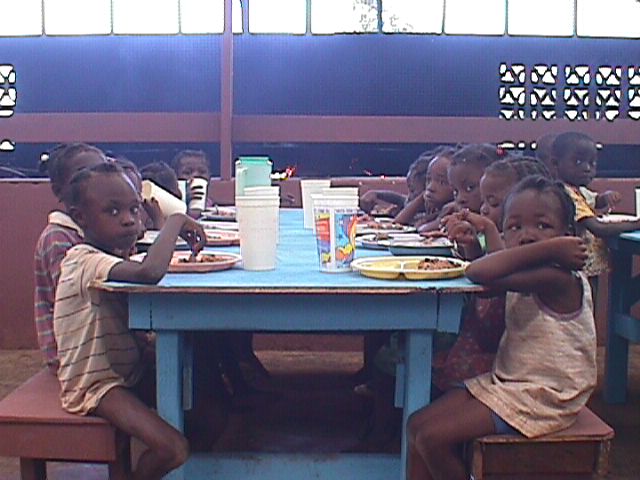
Big Lies about Little People: The War Between UNICEF and the Orphanages, Battleground Haiti - Schwartz Research Group
Following the January 2010 Haiti earthquake there were a lot of exaggerations, truth-twisting and outright lies. But perhaps none exceeded those that came from the mouths of child protection workers and orphanage owners. With UNICEF and Save the Children leading the way, orphanages fanning the...
timothyschwartzhaiti.com
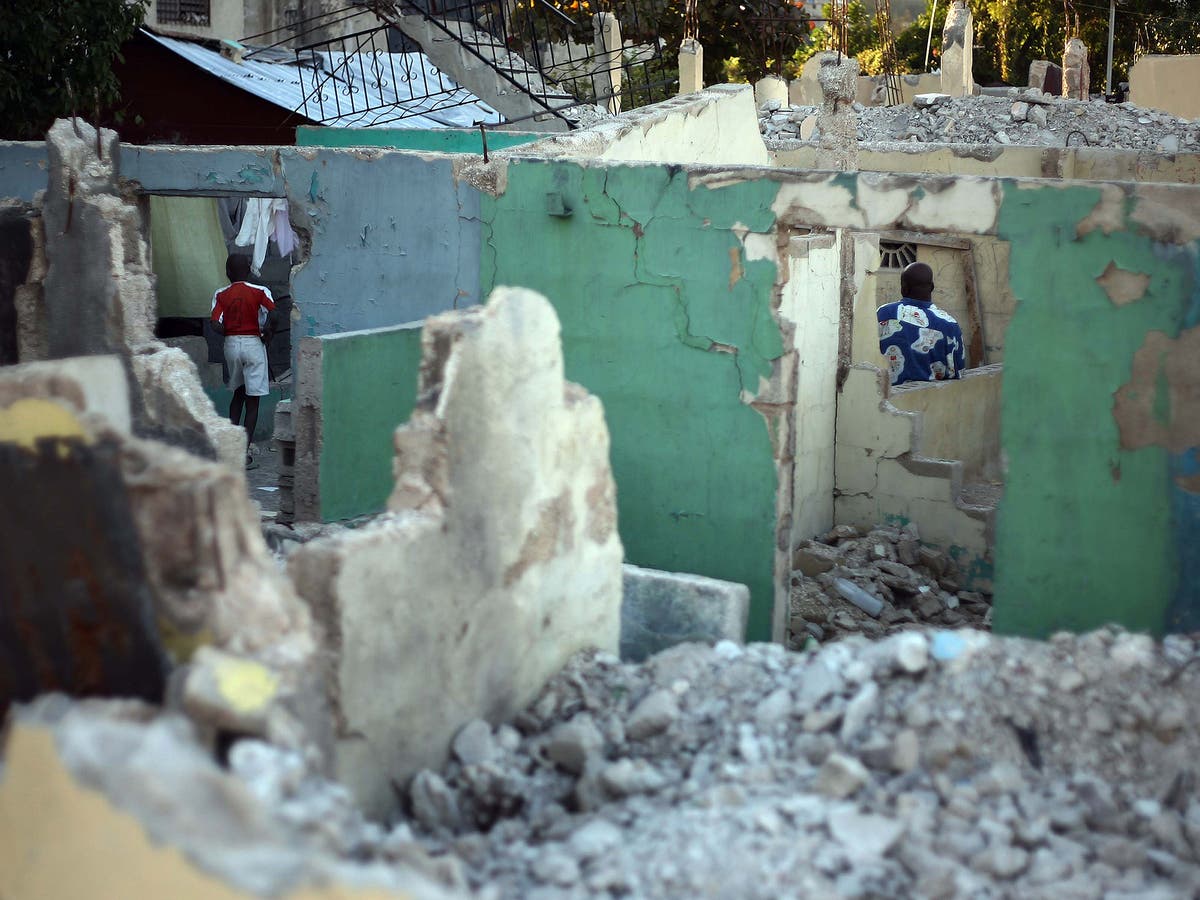
Oxfam failed to act on reports workers were raping girls as young as 12, damning report concludes
Senior staff failed to alert law enforcement to allegations aid workers were having sex with minors, a damning Charity Commission report concludes

U.S. Missionaries In Haiti Charged With Child Kidnapping
The Haitian government has formally charged with child kidnapping 10 U.S. Baptist missionaries detained in Haiti for attempting to take 33 Haitian children into the Dominican Republic without proper documentation.

Lawsuit: Former Providence priest trafficked children for sex
A priest in the Roman Catholic Diocese of Providence trafficked children for sex, using the guise of international charitable work to prey on boys at

Haitians say underaged girls were abused by U.N. peacekeepers
Girls as young as 11 were sexually abused and impregnated by U.N. peacekeepers in Haiti and abandoned to raise their children alone, according to testimonies from more than 2,000 residents.
Another Must Read book on Haiti specifically
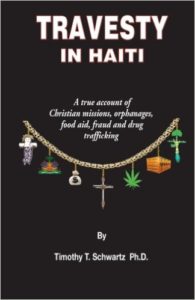

Travesty In Haiti - Schwartz Research Group
Travesty in Haiti: A true account of Christian missions, orphanages, fraud, food aid and drug trafficking TRAVESTY is an anthropologist’s personal story of working with foreign aid agencies and discovering that fraud, greed, corruption, apathy, and political agendas permeate the industry. It is...
timothyschwartzhaiti.com
For those of you in Sto.Dom - I gave my entire English library on Haiti and international development - about two cartons - to FUNGLODE - so I assume that all the books that I have reference here are available there for research (borrowing perhaps?) .....
Of course not. Paying a burger-flipper at McDonalds more will not make him worker harder. You're missing the point."A wealth of psychology research suggests that there's little causal relationship, if any, between how much you pay someone and how hard they work."
Pop psychology bullthat looks good on a post card but does not hold up when examined with academic rigor.
In answer to a question posed earlier on this thread - about what the Haitians might teach us -
Timothy Swartz has years on the ground in Haiti - and is a most excellent writer and observer - trained as an anthropologist... Read the entire article - for pleasure..
..."Their frugality and resourcefulness is nothing short of stunning. Many of the items used in and around households are procured or manufactured by household members from useful plants, trees, and shrubs found in the yard, growing up around the garden, along paths, or in the kadas (arid State land). Limes and sour oranges are used as all-purpose disinfectants; aloe and maskriti as a hair oil and conditioner. Galata and gayak leaves, and seeds from the bawonet plant, serve as soaps. Rope is woven from sisal and palm thatch. Sacks and saddlebags are fashioned out of thatch and grasses. Baskets are made of grasses, royal palm leaves and/or splintered bamboo. Sleeping mats are made from dried plantain stalks. Gourds from the kalbas tree provide a range of different sized storage and drinking vessels. Sticks are collected for use as cooking fuel. Flammable coconut husks, pitch pine, and dried orange peelings are used to start fires. Often households do not even own a pack of matches, but send a child when necessary to borrow a burning ember from a neighbor. Uses are found for imported industrial refuse: flammable plastic bottles or packaging serve as fire-starter, mattresses are fashioned from worn-out Goodwill clothing and sheets, pigeon houses are made from flattened cans of cooking oil, a scrap bucket lid makes a wheel for a boy’s go-cart, a nail is the axle, a stick is the drive shaft, and a sprinting boy is the motor.
When drought or blight strikes these people regularly consume at least thirty varieties of wild leaves; a wild olive, which before the recent advent of imports and food aid was an important source of cooking oil; and at least one wild bean. During times of crisis, they eat boiled green mangos, unripe fruit from the corosoltree, at least five types of undomesticated seed pods, two wild yams, and the fruit of a cactus. People in the region also opportunistically eat feral cats, iguanas, and most types of birds—including eagles, hawks, and woodpeckers. They consume land crabs, fresh-water crabs, and crayfish. They need cash to pay for school and medical care. To get it they sell their garden produce and animals in flourishing Internal Rotating Market that astound most outsiders. Throughout the country, thronging open air markets with thousands of corralled and braying donkeys occur on alternating days of the week such that people living in any given region have walking distance access to at least two markets per week. Montane micro-climates, their differing rainfall patterns, and the consequently differently timed harvest season make it logical for farmers to sell their crops rather than risk losing them to insect and mold and then store surplus in the form of money. The opportunity has facilitated the evolution of the intense interregional trade dominated almost entirely by women. Called machann and madan sara, the women may sell daily small quantities of items produced by the household- such as eggs, manioc or pigeon peas. But the prevailing strategy is for one women to seasonally specialize in a particular item, such as limes. She buys small quantities from multiple farms, accumulates a profitable quantity, and then takes them to market or sells them to another female intermediary higher up the chain, one more heavily capitalized, who accumulates greater quantities and who is likely destined for a larger town market, city or, the holy grail, Port-au-Prince, where prices are two to five times."...
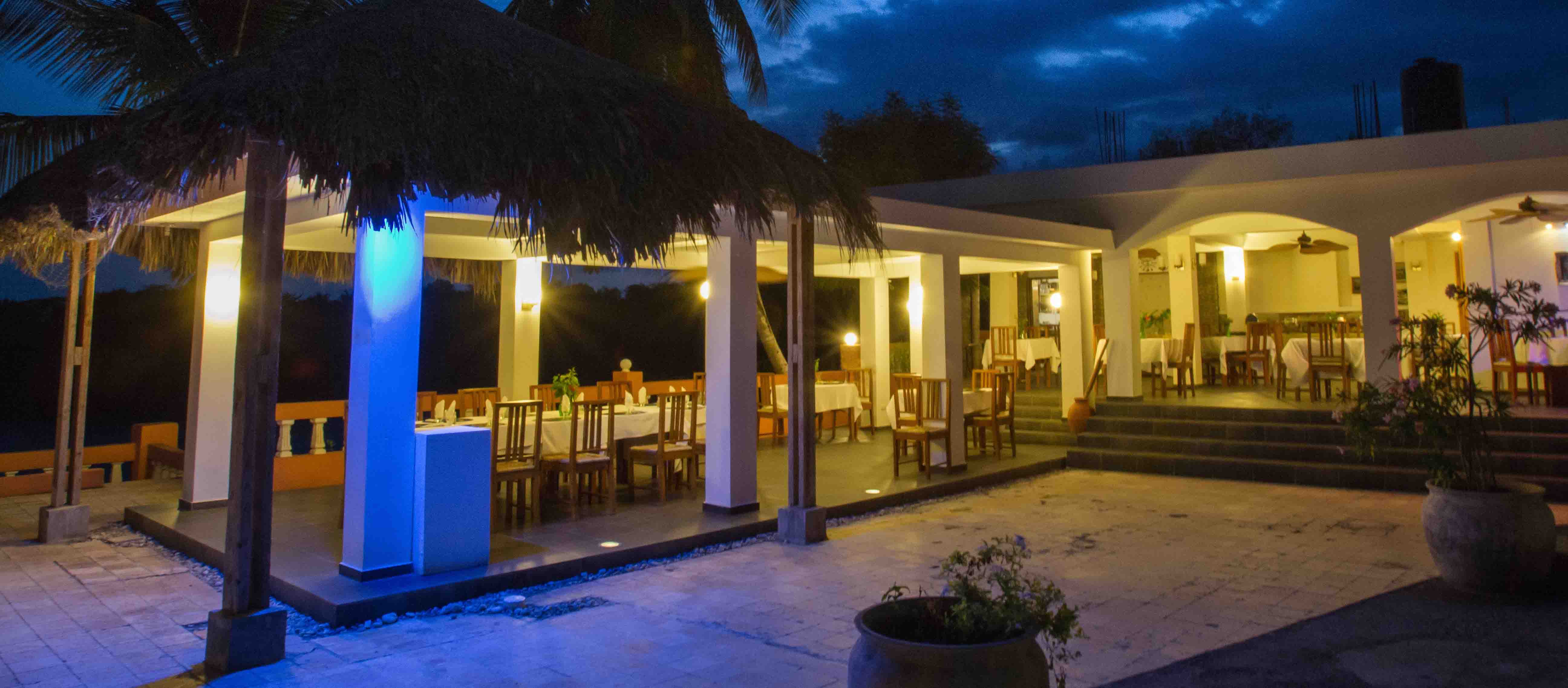
Timothy Swartz has years on the ground in Haiti - and is a most excellent writer and observer - trained as an anthropologist... Read the entire article - for pleasure..
..."Their frugality and resourcefulness is nothing short of stunning. Many of the items used in and around households are procured or manufactured by household members from useful plants, trees, and shrubs found in the yard, growing up around the garden, along paths, or in the kadas (arid State land). Limes and sour oranges are used as all-purpose disinfectants; aloe and maskriti as a hair oil and conditioner. Galata and gayak leaves, and seeds from the bawonet plant, serve as soaps. Rope is woven from sisal and palm thatch. Sacks and saddlebags are fashioned out of thatch and grasses. Baskets are made of grasses, royal palm leaves and/or splintered bamboo. Sleeping mats are made from dried plantain stalks. Gourds from the kalbas tree provide a range of different sized storage and drinking vessels. Sticks are collected for use as cooking fuel. Flammable coconut husks, pitch pine, and dried orange peelings are used to start fires. Often households do not even own a pack of matches, but send a child when necessary to borrow a burning ember from a neighbor. Uses are found for imported industrial refuse: flammable plastic bottles or packaging serve as fire-starter, mattresses are fashioned from worn-out Goodwill clothing and sheets, pigeon houses are made from flattened cans of cooking oil, a scrap bucket lid makes a wheel for a boy’s go-cart, a nail is the axle, a stick is the drive shaft, and a sprinting boy is the motor.
When drought or blight strikes these people regularly consume at least thirty varieties of wild leaves; a wild olive, which before the recent advent of imports and food aid was an important source of cooking oil; and at least one wild bean. During times of crisis, they eat boiled green mangos, unripe fruit from the corosoltree, at least five types of undomesticated seed pods, two wild yams, and the fruit of a cactus. People in the region also opportunistically eat feral cats, iguanas, and most types of birds—including eagles, hawks, and woodpeckers. They consume land crabs, fresh-water crabs, and crayfish. They need cash to pay for school and medical care. To get it they sell their garden produce and animals in flourishing Internal Rotating Market that astound most outsiders. Throughout the country, thronging open air markets with thousands of corralled and braying donkeys occur on alternating days of the week such that people living in any given region have walking distance access to at least two markets per week. Montane micro-climates, their differing rainfall patterns, and the consequently differently timed harvest season make it logical for farmers to sell their crops rather than risk losing them to insect and mold and then store surplus in the form of money. The opportunity has facilitated the evolution of the intense interregional trade dominated almost entirely by women. Called machann and madan sara, the women may sell daily small quantities of items produced by the household- such as eggs, manioc or pigeon peas. But the prevailing strategy is for one women to seasonally specialize in a particular item, such as limes. She buys small quantities from multiple farms, accumulates a profitable quantity, and then takes them to market or sells them to another female intermediary higher up the chain, one more heavily capitalized, who accumulates greater quantities and who is likely destined for a larger town market, city or, the holy grail, Port-au-Prince, where prices are two to five times."...

The Harsh World of Being an Aid Worker - Schwartz Research Group
It’s March 21st, two months and nine days after the 2010 Haiti earthquake. I’m seated at a table surrounded by five other diners, in a crowded outdoor restaurant, trying to work a legally undersized lobster tail out of its shell. The town in which this restaurant is located is called Jacmel...
timothyschwartzhaiti.com
For those who do not click on links -
..."Following the January 2010 Haiti earthquake there were a lot of exaggerations, truth-twisting and outright lies. But perhaps none exceeded those that came from the mouths of child protection workers and orphanage owners. With UNICEF and Save the Children leading the way, orphanages fanning the flames, and the press publishing almost anything anyone said–no matter how scant the facts–the scramble to save Haiti’s children took on apocalyptic dimensions. They told us that there were over 1 million lost, separated or abandoned children, conjuring up images of little children aimlessly wandering through the ruins of Port-au-Prince. As time went on the experts added images of sexual predators and slave hunters prowling the rubble in search of the children. They told us that people were selling children for $50. It came to be known around the world as the “Haiti Orphan Crisis.”
Almost none of it was true.
The number of orphaned, lost or separated children was inflated by factors that ran into the hundreds and perhaps thousands. No network of slave hunters or perverts was ever verified. Nor was there ever a confirmed case of someone selling a child. But for those organizations that were feeding the untruths and exaggerations to the media, the Haiti Orphan Crisis was a gold mine. Save the Children, the organization that first made the claim of one million orphans, originally sent out a plea for $9.8 million in donations. With the help of the “orphan crisis” they reached that figure in a matter of weeks; then they raised their “need” to $20 million; next they jacked it up to $36.6 million; then to $65 million; by August 1st 2011 Save the Children had collected $87 million, almost ten times their original request. World Vision, another major child protection agency, asked for $3.8 million; as the money poured in they upped their need to $8.1 million; then $12.5 million; then $100 million; seven months after the earthquake they had collected a total of $191 million, 50 times what they had orginally asked for. UNICEF, the king of child protection and the king of untruths about Haitian children–both before and after the earthquake–originally called for $120 million. When they brought in $229 million in six months – almost double what they requested – they decided they needed another $127 million. By the end of the year UNICEF had collected $291 million, 17 times their 2009 budget for Haiti."...

..."Following the January 2010 Haiti earthquake there were a lot of exaggerations, truth-twisting and outright lies. But perhaps none exceeded those that came from the mouths of child protection workers and orphanage owners. With UNICEF and Save the Children leading the way, orphanages fanning the flames, and the press publishing almost anything anyone said–no matter how scant the facts–the scramble to save Haiti’s children took on apocalyptic dimensions. They told us that there were over 1 million lost, separated or abandoned children, conjuring up images of little children aimlessly wandering through the ruins of Port-au-Prince. As time went on the experts added images of sexual predators and slave hunters prowling the rubble in search of the children. They told us that people were selling children for $50. It came to be known around the world as the “Haiti Orphan Crisis.”
Almost none of it was true.
The number of orphaned, lost or separated children was inflated by factors that ran into the hundreds and perhaps thousands. No network of slave hunters or perverts was ever verified. Nor was there ever a confirmed case of someone selling a child. But for those organizations that were feeding the untruths and exaggerations to the media, the Haiti Orphan Crisis was a gold mine. Save the Children, the organization that first made the claim of one million orphans, originally sent out a plea for $9.8 million in donations. With the help of the “orphan crisis” they reached that figure in a matter of weeks; then they raised their “need” to $20 million; next they jacked it up to $36.6 million; then to $65 million; by August 1st 2011 Save the Children had collected $87 million, almost ten times their original request. World Vision, another major child protection agency, asked for $3.8 million; as the money poured in they upped their need to $8.1 million; then $12.5 million; then $100 million; seven months after the earthquake they had collected a total of $191 million, 50 times what they had orginally asked for. UNICEF, the king of child protection and the king of untruths about Haitian children–both before and after the earthquake–originally called for $120 million. When they brought in $229 million in six months – almost double what they requested – they decided they needed another $127 million. By the end of the year UNICEF had collected $291 million, 17 times their 2009 budget for Haiti."...

Big Lies about Little People: The War Between UNICEF and the Orphanages, Battleground Haiti - Schwartz Research Group
Following the January 2010 Haiti earthquake there were a lot of exaggerations, truth-twisting and outright lies. But perhaps none exceeded those that came from the mouths of child protection workers and orphanage owners. With UNICEF and Save the Children leading the way, orphanages fanning the...
timothyschwartzhaiti.com
..."Many of Haiti’s orphanages use deception to recruit children from unknowing and impoverished parents - a form of trafficking - and use those children to attract donations, said the report released on Thursday by the London-based charity Lumos.
Donors, mostly from the United States and faith-based organizations, give $70 million a year to one-third of Haiti’s 750 orphanages, it said.
About 30,000 children live in orphanages in Haiti, even though four in five of those children have at least one living parent, Lumos said. Most orphanages are privately funded.
Impoverished families are frequently duped into giving up their children by orphanage directors who hire so-called child-finders and local pastors who also seek out children, it said.
In some cases, families had been paid $75 to give their children away, the report said."...

 www.reuters.com
www.reuters.com
the dateline on this story is 2017 - so - sadly - it is not "old news" - well - it is in the sense that it has been going on for a long time and has been well known for a long time....
Donors, mostly from the United States and faith-based organizations, give $70 million a year to one-third of Haiti’s 750 orphanages, it said.
About 30,000 children live in orphanages in Haiti, even though four in five of those children have at least one living parent, Lumos said. Most orphanages are privately funded.
Impoverished families are frequently duped into giving up their children by orphanage directors who hire so-called child-finders and local pastors who also seek out children, it said.
In some cases, families had been paid $75 to give their children away, the report said."...

Haiti orphanages hotspot of child trafficking, abuse, says charity
Children living in hundreds of orphanages in Haiti suffer sexual and physical abuse and some are trafficked into orphanages for profit, according to a charity founded by "Harry Potter" author J.K. Rowling.
the dateline on this story is 2017 - so - sadly - it is not "old news" - well - it is in the sense that it has been going on for a long time and has been well known for a long time....
"In a country where 59% of the population lives on less than $2.41 per day, the (redacted) could have simply given Haitians the money. Studies have shown that such “unconditional cash transfers” can be a more effective way to increase income and access to education and housing than many types of traditional “project-based” aid. But policies like cash transfers would have undermined the approach to aid in which rich countries simply prescribe “solutions” for poor ones, rather than allowing people to take their futures into their own hands.

Haiti and the failed promise of US aid
The long read: After an earthquake struck in 2010, the US pledged to help rebuild the Caribbean country. A decade later, nothing better symbolises the failure of these efforts than the story of a new port that was promised, but never builtwww.theguardian.com
"And if you want to stay rich, create a program with OPM that allows you to take advantage of the less fortunate economically" - unknown economic imperialist.
Don't buy that. Cash transfers create dependency. Education in Haiti sucks. They don't teach you anything except a bunch of useless facts. No critical thinking. No analyses.
Maybe I am...Of course not. Paying a burger-flipper at McDonalds more will not make him worker harder. You're missing the point.
Educate me.
Because I am absolutely certain you are missing the science behind this issue‼️
"In 2010, a study published in the Proceedings of the National Academy of Sciences analyzed information from half a million U.S. residents and concluded that once people begin making more than $75,000 a year, the relationship between more money and greater happiness begins to level off. Beyond that point, any bonus — whether it’s a dollar or a million dollars — does relatively little to significantly alter happiness in the long run.
And plenty of studies have found that extra payment, more than simply having no effect, can end up actually reducing the intrinsic motivation we would otherwise feel for an activity that we find interesting and rewarding."

Making More Money Won’t Help You Like Your Job Any More
In fact, cash rewards actually make people less motivated.
I have now presented two different articles that show payment after certain amount provides no motivation.
And that this does not just apply to a "burger-flipper".
Now I respect you opinion.
Do you respect the science that I have presented...
And how I have related it to Haiti ❓
..."Many of Haiti’s orphanages use deception to recruit children from unknowing and impoverished parents - a form of trafficking - and use those children to attract donations, said the report released on Thursday by the London-based charity Lumos.
the dateline on this story is 2017 - so - sadly - it is not "old news" - well - it is in the sense that it has been going on for a long time and has been well known for a long time....
Never saw that. I did see us having to turn away kids. I heard of other church orphanages not having enough room too.
Where ❓Don't buy that. Cash transfers create dependency.
In Haiti❓
Got anything to back that statement up or is it just your opinion❓
Cause I can quote you write ups about Universal Income experiments that have worked and did not create dependency when they were stopped.
I defer to your expertise in this area.Education in Haiti sucks. They don't teach you anything except a bunch of useless facts. No critical thinking. No analyses.
I was there for 5 years. I saw it first hand.Where ❓
In Haiti❓
Got anything to back that statement up or is it just your opinion❓
Cause I can quote you write ups about Universal Income experiments that have worked and did not create dependency when they were stopped.
I defer to your expertise in this area.
Fonkoze is a great organization with their microloans. Teach someone to fend for themselves, not give them handouts.
Nan - I am pretty sure that you were among the Good Guys - and I have it on the authority of a friend who was one of the last Peace Corps workers in Haiti - when the Peace Corps pulled out in 2005 - that without the Christian missionaries she believed that Haiti would essentially collapse.Never saw that. I did see us having to turn away kids. I heard of other church orphanages not having enough room too.
As you have perceived, I am not a fan of religious missionaries - not of any ilk - This entire hemisphere would have been better off without Columbus coming "with a sword to conquer in the name of Christ" (which is oxymoronic, imho) and following perhaps the earth based religions of the North American indigenous people...
Have never actually met a Christian missionary who was tolerant of pagans - And I am really not such a fan of "the Good Book" which ends pretty badly - again - imho...
But - I am a huge fan of Jesus - I just don't see much of him in his followers.
but - well - it is what it is...

